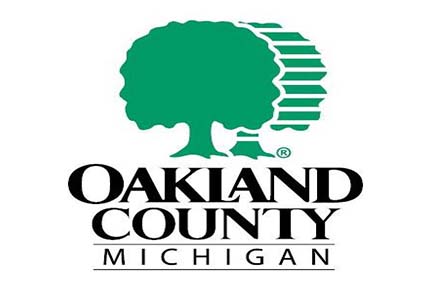Friday, June 4, 2021
Media Contact: Camara Lewis, 517-930-4928
As the economy continues to grow, the Michigan Dept. of Labor and Economic Opportunity (LEO) launched a new ‘Back to Work’ effort to highlight programs and services that help businesses and their current workforce needs.
The new online resource – Michigan.gov/BackToWork – centralizes programs and services aimed at helping employers fill job openings; provide safe, healthy work environments for workers; and address other business-related needs.
“As we put Michigan back to work, our administration is turning our attention to uplifting Michiganders and supporting small businesses to continue our state’s strong economic outlook,” said Governor Gretchen Whitmer. “By providing tangible resources for businesses who need our immediate assistance after a challenging year, we will ensure that Michigan families and small businesses emerge from the pandemic stronger than ever before.”
The ‘Back to Work’ effort comes at a time when the state is faced with five predominant workforce challenges:
- Demand for workers is high.
- Labor supply is relatively weak.
- Lack of significant wage growth.
- Fear of COVID-19 – employees will not go back into workplace if they do not feel safe.
- Lack of child care.
To address the immediate needs of job providers and the workforce, employers can take advantage of free resources such as the online portal for connecting them with job seekers; Pure Michigan Talent Connect and LEO-organized virtual job fairs that can be regional, industry or occupational-focused, matching job seekers to employers in a remote space.
LEO continues to offer assistance through the MIOSHA Ambassador program by providing free education to help employers create safe workplaces without the risk of any potential penalty or citation. Over 4,000 businesses have participated since September 2020.
In addition, unemployment insurance (UI) benefits provided a wealth of economic relief to Michigan. Throughout the pandemic, most Michigan claimants went back to work well before they exhausted their benefits – an average of 14 weeks versus the full 20 weeks. Not only are UI benefits not a major workforce barrier, but the program resulted in $64.7B in statewide earnings, which helped contribute to the economic recovery.
UI benefit programs like Work Share allow employers to bring back or keep employees working with reduced hours. During the pandemic, Michigan had the No.1 Work Share program in the country, preserving nearly 100,000 jobs and saving the State Trust Fund more than $90 million. The agency is currently working with state lawmakers to expand program flexibility to allow more employers to participate and more workers to be covered.
“Throughout this pandemic we have prioritized businesses talent needs, and we continue to be committed to ensuring every Michigander has an equal and accessible opportunity to postsecondary education that leads to a good-paying, in-demand career,” said LEO Acting Director Susan Corbin. “By providing employers with services to find and develop skilled talent, we create lasting change for every Michigander seeking a better life.”
The pandemic has created a growing child care crisis that threatens the state’s economic recovery. Many child care centers are still closed, or reopening at a reduced capacity because of staff shortages and to allow for greater social distancing. Heading into the summer, many parents are concerned about child care availability. The state plans to use federal dollars to expand its pilot MI Childcare Tri-Share Program that provides more affordable child care through an innovative, bipartisan cost-sharing program that divides cost equally between employees, employer and state.
To further engage employers, LEO is hosting a virtual webinar geared toward highlighting services businesses can tap immediately and addressing their questions related to employment and training needs. The webinar is scheduled for Wednesday, June 9 at 10 – 10:45 a.m. To join, register at: https://us02web.zoom.us/webinar/register/WN_TbEb9QxBQ8irnyYU1q5QQQ.
In addition to tools to address your immediate workforce needs, employers looking to fill jobs and retain talent are encouraged to explore the state’s programs and services at Michigan.gov/BackToWork.






 Want to see more pictures like this, taken by Michigan state parks photo ambassador
Want to see more pictures like this, taken by Michigan state parks photo ambassador  Whether you’re an outdoors newbie building up your recreational skills or an experienced veteran searching for a fresh hobby, the DNR Outdoor Skills Academy has a class for you!
Whether you’re an outdoors newbie building up your recreational skills or an experienced veteran searching for a fresh hobby, the DNR Outdoor Skills Academy has a class for you!
 Nationwide, nine out of 10 wildfires are caused by people. When wildfires happen, DNR firefighters are there to put them out.
Nationwide, nine out of 10 wildfires are caused by people. When wildfires happen, DNR firefighters are there to put them out.
 As the weather continues to warm, baby wildlife will venture out of their nests or dens. If you have a chance to see this new generation of wildlife, remember to enjoy it from a distance and leave these babies alone.
As the weather continues to warm, baby wildlife will venture out of their nests or dens. If you have a chance to see this new generation of wildlife, remember to enjoy it from a distance and leave these babies alone.
 Muskellunge, a prized sportfish, are known as the fish of a thousand casts because of the difficulty many anglers have in catching them. Their movements and behaviors are shrouded in mystery, but a multiagency team of researchers is using state-of-the-art technology to reveal patterns of muskie movements in the Great Lakes.
Muskellunge, a prized sportfish, are known as the fish of a thousand casts because of the difficulty many anglers have in catching them. Their movements and behaviors are shrouded in mystery, but a multiagency team of researchers is using state-of-the-art technology to reveal patterns of muskie movements in the Great Lakes.

